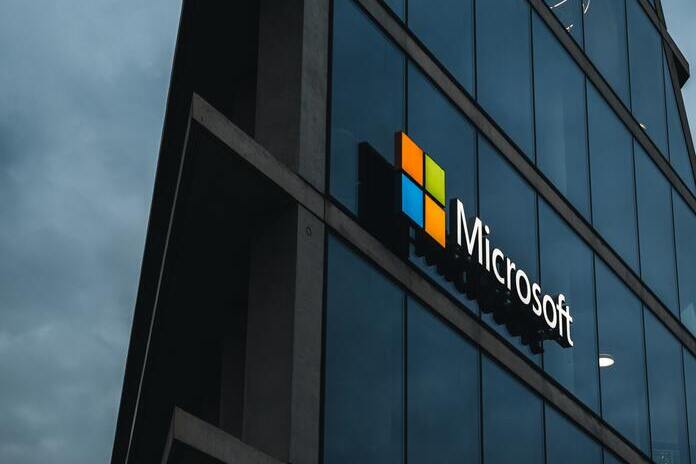Microsoft Corporation (NASDAQ:MSFT) is a high-quality firm. It also has a dominant position in the Artificial Intelligence area due to its ownership of ChatGPT owner OpenAI, as well as being engaged in the AI space through in-house developments. Microsoft’s shares have exploded upward in recent months due to investor enthusiasm for Artificial Intelligence initiatives, and those who bought into Microsoft stock at the appropriate moment have reaped significant rewards.
Artificial Intelligence as a New Megatrend
For the past few months, artificial intelligence, or AI, has been in everyone’s mouth and in everyone’s thoughts. While the technology is still in its early stages, it is apparent that AI will have a significant impact on how we live our lives, work, and so on in the future. AI can be used to increase employee productivity, for example, by speeding up monotonous work, but it can also be used to replace employees. AI will very certainly be used to make automobiles self-driving (or, at some time, self-flying), AI will almost certainly be used to generate new forms of art, and so on.
It is impossible to predict how quickly this transformation will occur, where the influence will be felt immediately, and where it will take longer. However, it appears that the impact of AI will be enormous in the end. Of course, not all businesses will benefit equally from this trend. Those who win the AI race may see their businesses grow dramatically, while others may be left behind. NVIDIA (NVDA) appears to be exceptionally well-positioned in the AI hardware area, as demand for its AI chips is booming, prompting the company to forecast enormous revenue growth in the current quarter.
Microsoft as a Leading AI Provider
Other businesses will emerge as champions in the software AI field. Microsoft is one of the most well-positioned firms in the field of artificial intelligence. This is owing to Microsoft’s ownership of ChatGPT owner OpenAI, which allows it to incorporate ChatGPT with its existing products.
However, ChatGPT, albeit the most well-known AI technology to date, is not the only avenue for Microsoft to benefit from artificial intelligence. In addition to its investment in OpenAI, Microsoft is investing in other AI sectors, and due to its large scale and vast resources, Microsoft is among the best-positioned businesses to invest heavily in this high-growth market. Smaller competitors will likely lack the financial resources to spend extensively in data center capacity, engineers, and so on, and will thus struggle to keep up with Microsoft and other deep-pocketed software behemoths like Alphabet (NASDAQ:GOOGL). Because the AI industry involves significant upfront investments and AI products are sometimes not yet profitable, size, scale, and financial resources are major competitive advantages. As a result, I wouldn’t be shocked if the top software companies, including Microsoft, dominated this future market as well. Even when smaller firms develop new technology or advances, giants like Microsoft can simply acquire or purchase an interest in them, as MSFT did with OpenAI.
Microsoft Performs Admirably
However, for the time being, Microsoft’s revenues, profitability, and cash flows are primarily dependent on other firms. The company’s heritage industries – operating systems and corporate productivity software – continue to generate enormous amounts of cash and even some growth, despite the fact that the market is not increasing significantly. The subscription model, on the other hand, allows MSFT to monetize users throughout their entire lifecycle, which means that Microsoft is highly profitable even when consumers and businesses spend less on new PCs, for example – which is the case right now, as many people upgraded their hardware during the pandemic, resulting in lower demand for PCs and similar products today.
Cloud computing is a faster-growing industry for Microsoft than its heritage companies, but unlike AI, it is already a significant contribution to Microsoft’s bottom line. Microsoft’s cloud businesses are also quite profitable. Overall, Microsoft is well-positioned in several businesses at various stages of the cycle: The legacy businesses are not growing rapidly, but Microsoft completely dominates them and generates large earnings and cash flows. The cloud computing business is developing quicker and is currently profitable, whereas the AI field is in its early stages and is not yet profitable, but it promises significant growth potential in the coming years and decades.
Of course, Microsoft also owns various other businesses, like its game division (with a potential acquisition of Activision Blizzard (NASDAQ:ATVI)) and its Surface hardware division. However, I believe that in the long run, these will only contribute modestly to MSFT’s growth, whereas cloud computing and AI will be the primary long-term growth drivers. However, from a diversity standpoint, one could argue that these new business segments make Microsoft even more resilient.
Microsoft’s sales increased by 7% in the most recent quarter. This is lower than what investors have become accustomed to in recent years, but given the challenging macroeconomic situation, with huge economic uncertainty and a potential recession on the horizon, a high-single-digit revenue growth rate remains appealing. Many firms are reducing their technology spending in order to prepare for a potential recession, and the recent strong US Dollar has also been a headwind – in that setting, Microsoft’s performance was encouraging.
Microsoft Stock
On October 15, Microsoft’s stock price was temporarily dropped due to a Hedgeye report that highlighted MSFT as a new short idea. Hedgeye’s thinking at the time was based on a predicted downturn in growth. However, Microsoft continues to grow at an appealing rate, and its AI leadership position, in my opinion, translates into a compelling future growth potential. We recommended Microsoft as a buy last fall, citing the low valuation and the fact that Microsoft is a high-quality firm that has proven to be innovative and robust in the face of external shocks such as recessions or the COVID pandemic.
Microsoft’s share price performance has been highly enticing since then. Shares have up 45% since our buy recommendation, handily outperforming the S&P 500 index over the same period. Purchasing high-quality firms when they are momentarily out of favor owing to exaggerated fears can be quite profitable. Not surprisingly, we are pleased with our long position in Microsoft, and I anticipate other Microsoft shareholders will be as well.
However, just because Microsoft was a fantastic investment last autumn does not indicate it will be a great investment at present pricing. After all, valuation must be examined – last fall, valuation was depressed, but not today.
The current earnings multiple for this year is 35, based on expected consensus earnings per share. The median earnings multiples for the next five and ten years are significantly lower. Depending on whether the focus is on the shorter-term or longer-term average, Microsoft currently trades at a 10% to 25% premium over the historical norm. That’s hardly surprising given the current AI euphoria, but investors should not overlook what it means to acquire a stock at a historically high price.
When MSFT fell below its historically average valuation range last fall, future expected total returns were quite appealing, thanks to a combination of predicted business growth and several expansion tailwinds working in investors’ favor. When buying today, however, Microsoft’s business expansion will benefit investors, although multiple normalization will likely be a disadvantage in the future, as mean reversion predicts that MSFT will not trade above 35x net profits indefinitely.
Thus, Microsoft was a far better investment last autumn, but it is less tempting today. That doesn’t mean that returns for buyers here will be poor; they could still be appealing. However, they will not be as appealing as the returns offered to those who purchased MSFT last fall when it was out of favor and cheap.
While MSFT has a compelling growth forecast and is a high-quality company, the above-average valuation leads me to feel that investors looking to enter or expand a stake in this AI leader should wait for a better buying opportunity. I won’t add at these levels, but I’m content to keep Microsoft stock, which has already delivered extremely solid returns in recent months. When another buying opportunity presents itself, I will most likely add to my current stake.
Featured Image: Unsplash















